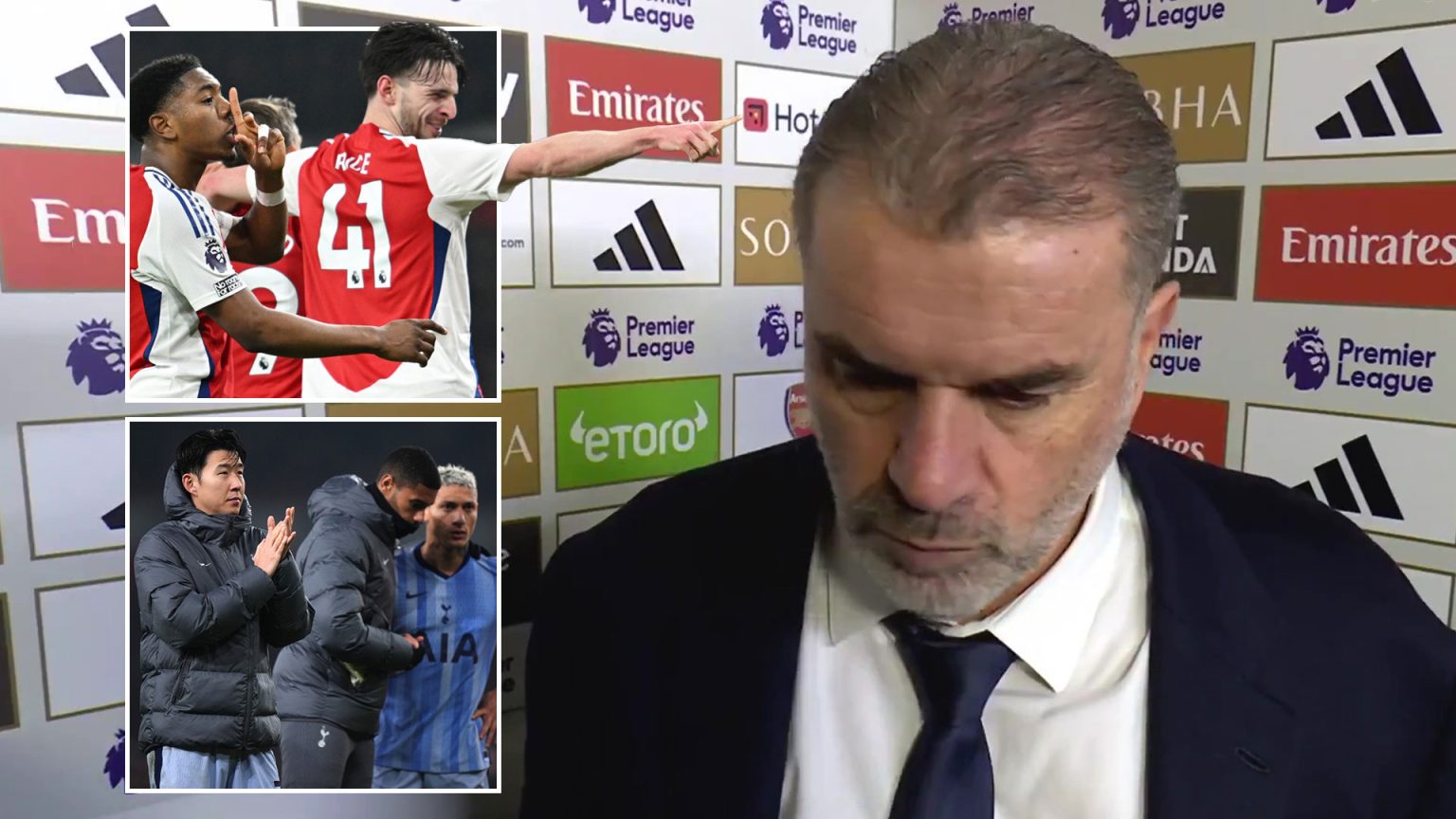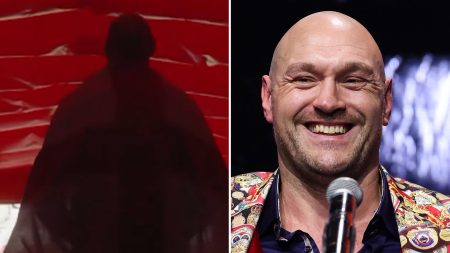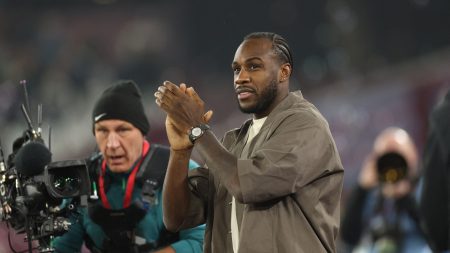Ange Postecoglou, the manager of Tottenham Hotspur, finds himself under increasing pressure following a dismal run of form in the Premier League. Their latest setback, a 2-1 defeat to arch-rivals Arsenal in the North London derby, has exposed the team’s vulnerabilities and amplified concerns about their direction under the Australian manager. Arsenal midfielder Declan Rice’s post-match comments, suggesting Arsenal should have scored ten goals, added insult to injury and highlighted the gulf in performance between the two sides. While a Carabao Cup semi-final run offers a glimmer of hope, the overall league performance has fostered a sense of unrest within the Tottenham camp.
The defeat to Arsenal, coupled with a string of poor results, has painted a bleak picture of Tottenham’s current state. They have secured just one victory in their last nine Premier League matches, a 5-0 thrashing of bottom-placed Southampton, which now seems more like an anomaly than a sign of progress. Their meager nine points from a possible 27 leave them closer to the relegation zone than the top four, a stark contrast to pre-season expectations. The dismal record against Arsenal, with only one win at the Emirates in the past 32 attempts, further underscores the team’s struggles against their fiercest rivals.
Postecoglou himself has acknowledged the team’s shortcomings, taking responsibility for the subpar performances and admitting that the level of play is simply “not acceptable.” His post-match analysis of the Arsenal game highlighted Tottenham’s passive approach, particularly in the first half, where they allowed Arsenal to dictate the tempo and control the game. He emphasized the need for improvement and stressed the urgency of halting the slide, focusing on their upcoming match against Everton as a chance to turn things around. However, the pressure mounts as another defeat could see Tottenham drop further down the table, increasing scrutiny on Postecoglou’s tactical approach and his ability to motivate the squad.
While Tottenham boasts a formidable attacking record, with 43 goals scored, their defensive frailties have been their Achilles’ heel. They have conceded 32 goals, a concerning statistic that exposes their vulnerability at the back. This defensive fragility has undermined their attacking prowess, rendering them susceptible to counter-attacks and ultimately costing them valuable points. The imbalance between attack and defense creates a precarious situation, demanding immediate attention if Tottenham are to climb the table and salvage their season.
The match against Everton presents a crucial opportunity for Tottenham to arrest their slide and regain some semblance of stability. Facing a team in similar turmoil, with Everton hoping for a resurgence under the returning David Moyes, the game takes on added significance. A victory could inject much-needed confidence into the Tottenham squad, while a defeat could further destabilize the team and intensify the pressure on Postecoglou. The Everton match represents a pivotal moment for Tottenham, a chance to demonstrate resilience and prove they can still compete despite their recent struggles.
Beyond the immediate concern of the Everton match, larger questions loom over Tottenham’s future. Postecoglou’s tactical philosophy and his ability to revitalize the squad will be under intense scrutiny. The team’s inconsistency and lack of defensive solidity necessitate a thorough assessment of their strengths and weaknesses. The January transfer window presents an opportunity to address some of these issues, but ultimately, the onus falls on Postecoglou to galvanize the squad and steer them back on course. The coming weeks will be critical in determining the trajectory of Tottenham’s season and the long-term viability of Postecoglou’s project.










